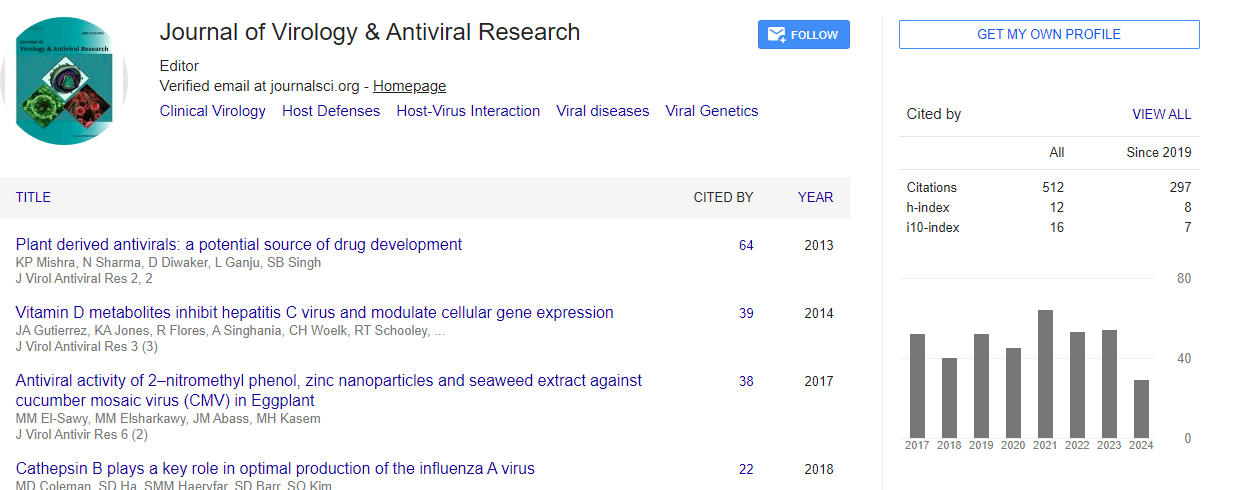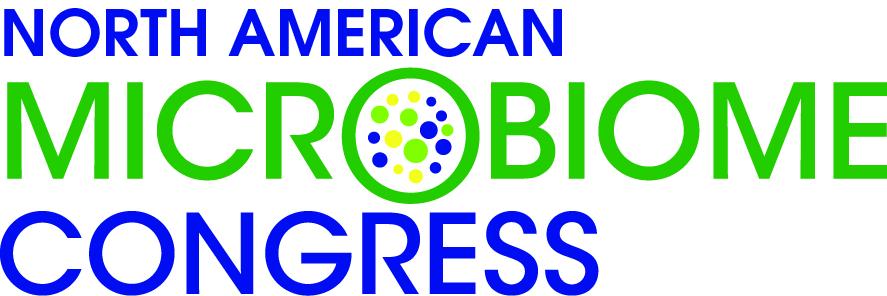Short Communication, J Virol Antivir Res Vol: 9 Issue: 3
Short Note on viral immunology
Mounica Merihelan*
Department of Microbiology, Andhra University, Visakhapatnam, India
*Corresponding Author: Mounica Merihelan
Department of Microbiology, Andhra University, Visakhapatnam, India
E-mail: mounicamerihelan@gmail.com
Received: July 10, 2020 Accepted: October 20, 2020 Published: October 27, 2020
Citation: Mounica M (2020) Short Note on Viral Diseases. J Virol Antivir Res 9:2.199. doi: 10.37532/jva.2020.9(3)199
Abstract
The general principles of medicine ar infective agent activation of immunity, body substance and cell-mediated immunity, virus-induced immunology, and roles of immune functions throughout infective agent infections. The term immunity tells concerning mechanisms by that a bunch could specifically acknowledge and react to viruses. The host reaction could also be helpful, prejudicious, or both. AN reaction to an endemic happens initial within the course of primary infection of a vulnerable, non-resistant host and growth throughout reinfection of an immune host. the precise immune responses that are effective against viruses
Keywords: Keywords: Viral Immunology, T lymphocytes, Immune host, Cytotoxic
The general principles of medicine are infective agent activation of immunity, body substance and cell-mediated immunity, virus-induced immunology, and roles of immune functions throughout infective agent infections. The term immunity tells concerning mechanisms by that a bunch could specifically acknowledge and react to viruses. The host reaction could also be helpful, prejudicious, or both. AN reaction to an endemic happens initial within the course of primary infection of a vulnerable, non-resistant host and growth throughout reinfection of an immune host. the precise immune responses that are effective against viruses.
Viral Antigens
The degree to that infective agent antigens are exposed to the host immune defenses is ruled by the living thing replication of viruses and by the many doable forms of virus-host cell interaction. The degree to that infective agent antigens ar exposed to the host immune defenses is ruled by the obligate living thing replication of viruses
• cell-mediated immunity presuming cytotoxic and T lymphocytes
• protein, with and while not its interaction with complement and antibody-dependent cell-mediated toxicity (ADCC),
• natural killer (NK) cells and macrophages, and
• lymphokines and monokines.
• The system response to an endemic.
• Virus has AN matter epitope.
• Refinement of matter to fragments.
• Presentation of matter (Ag) to T cells (on the infected cell surface) and B cells (free matter items or virus)
Acute Lysis
Acute lysis infection, the foremost common style of virus-host cell interaction ends up in destruction of the infected cell
Virus unfolds
Another vital thought in however infective agent infections trigger AN reaction is that the method during which a selected virus spreads within the host. In animal hosts, four forms of infective agent unfold are recognized: Native unfold, during which the infection is confined mostly to a tissue layer surface or organ (as in infection of the metabolic process epithelial tissue by rhinoviruses or of the canal. epithelial tissue by rotaviruses); Primary hematogenous unfold, during which the virus is inoculated directly into the blood. (e.g., insect-transmitted viruses) then disseminates to focus on organs; secondary hematogenous unfold, during which the initial infection and replication (often comparatively asymptomatic) occur on a tissue. layer surface with succeeding dissemination to focus on organs via the blood (e.g., common infective agent exanthems, polio, and mumps); System unfold, during which viruses (such as herpesviruses and rabies viruses) bare via the system. Clinical medicine is that the study of diseases caused by disorders of the system (failure, aberrant action, and malignant growth of the cellular parts of the system). It additionally involves diseases of different systems, wherever immune reactions play a vicinity within the pathology and clinical options (Tylenol) or ibuprofen (Motrin, Advil) for fever, body aches, and pain. The diseases caused by disorders of the system make up 2 broad categories: immunodeficiency, during which components of the system fail to supply AN adequate response (examples embody chronic neoplasm sickness and first immune diseases) autoimmunity, during which the system attacks its own host's body (examples embody general autoimmune disorder, autoimmune disorder, autoimmune disorder and myasthenia gravis). Other system disorders embody numerous hypersensitivities (such as in respiratory illness and different allergies) that respond unsuitably to otherwise harmless compounds. The most well-known sickness that affects the system itself is AIDS, AN immunological disorder characterized by the suppression of CD4+ ("helper") T cells, nerve fiber cells and macrophages by the Human immunological disorder Virus (HIV)
 Spanish
Spanish  Chinese
Chinese  Russian
Russian  German
German  French
French  Japanese
Japanese  Portuguese
Portuguese  Hindi
Hindi 

